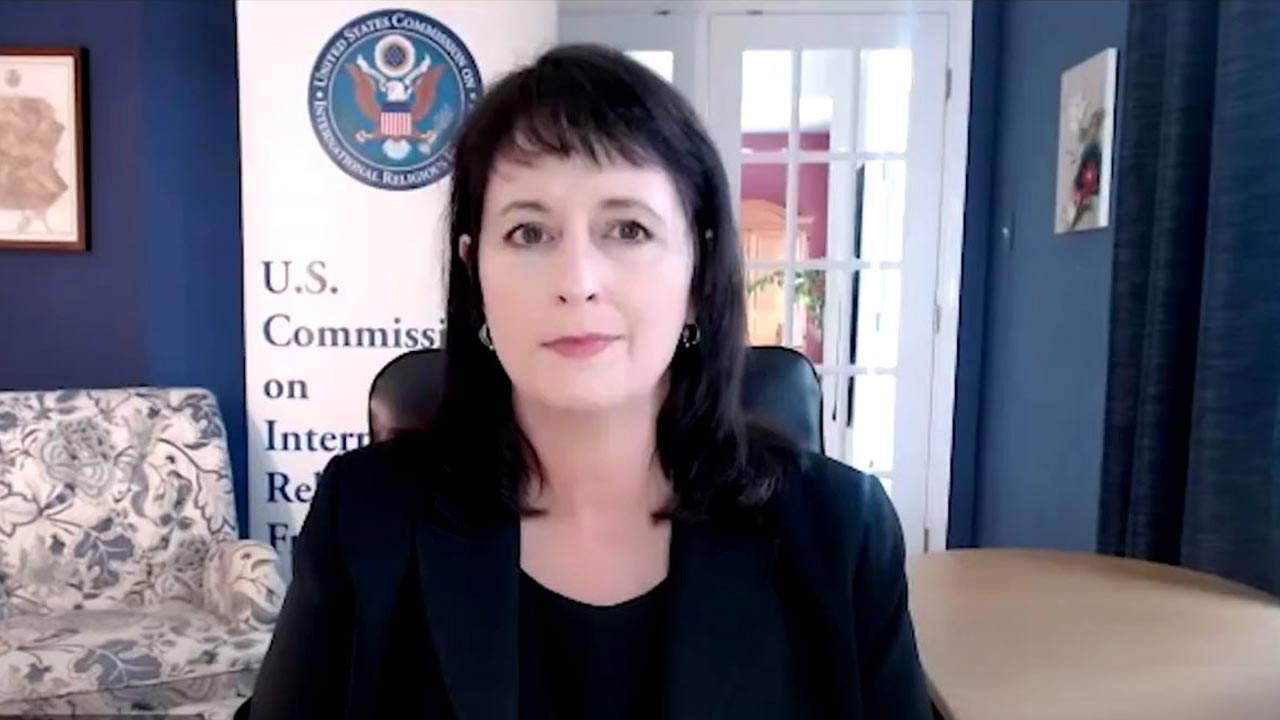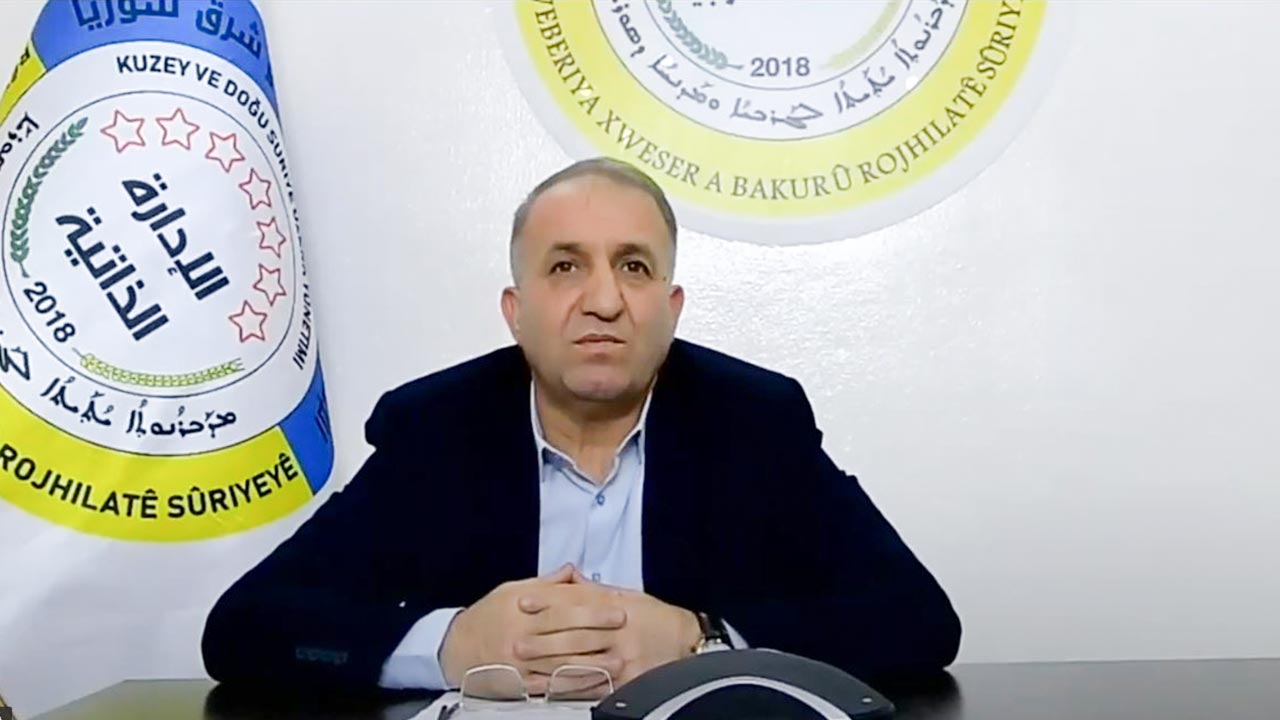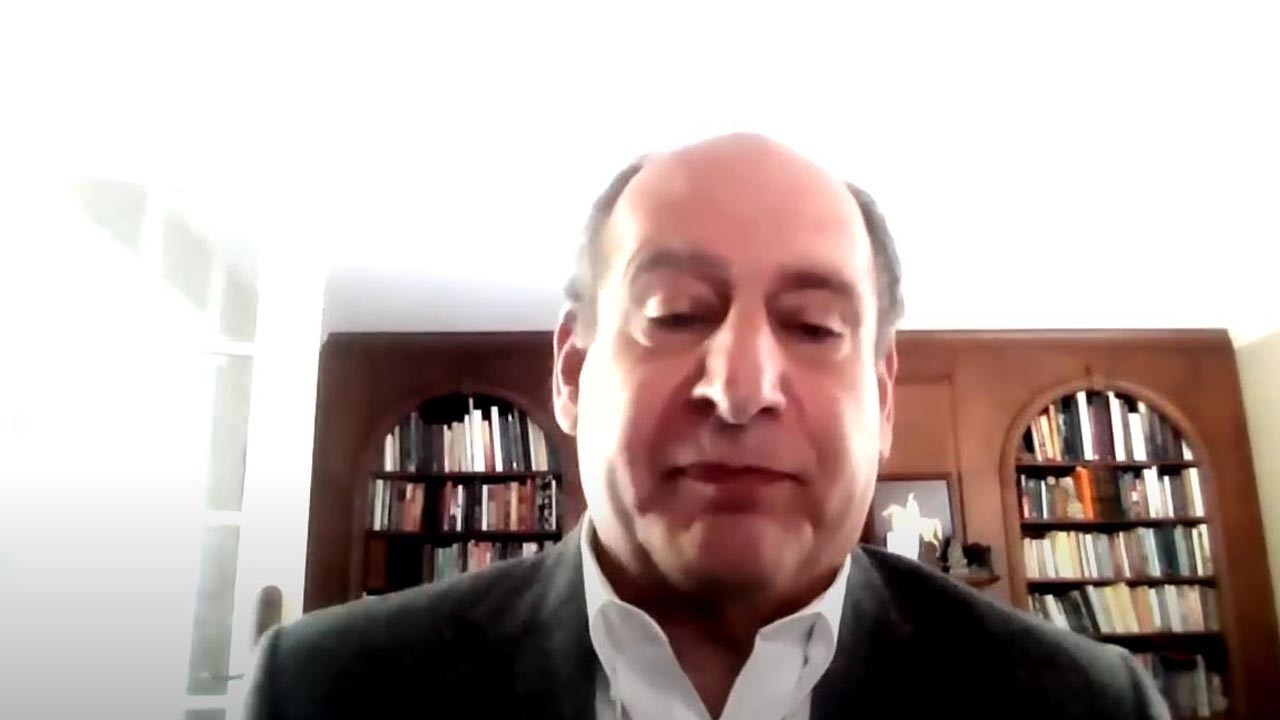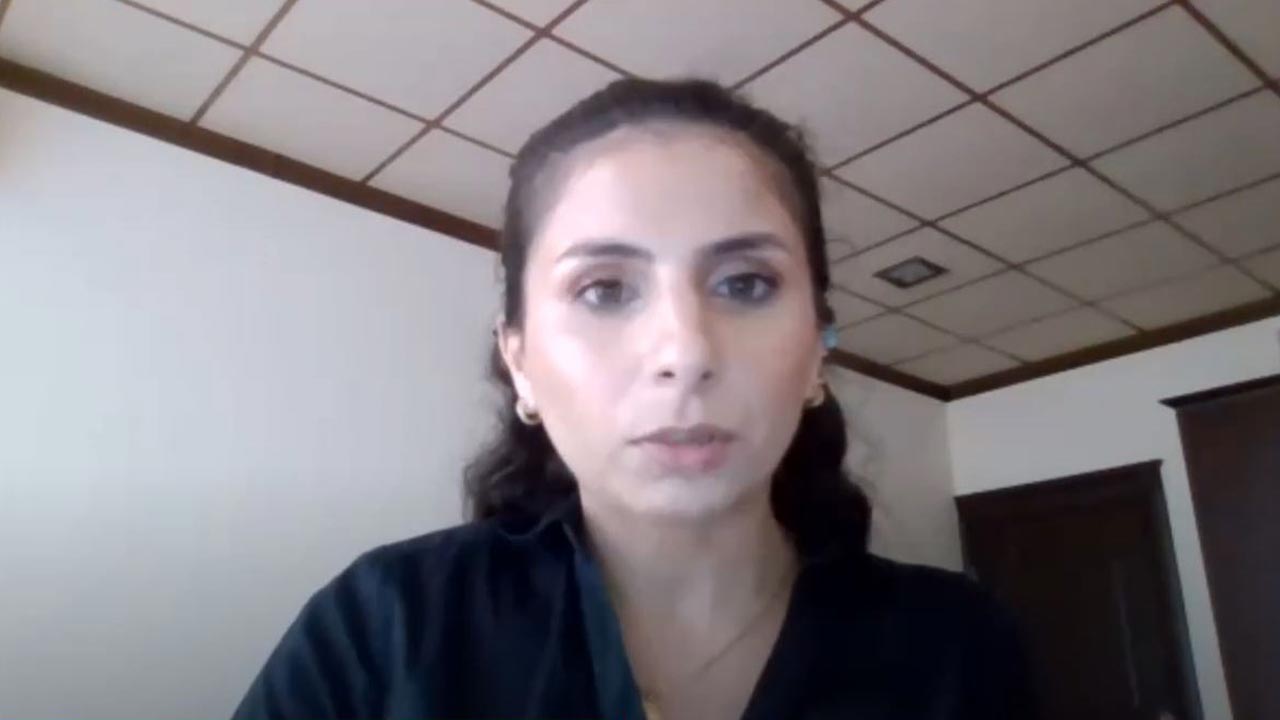The U.S. Commission on International Religious Freedom (USCIRF) examined current conditions in Syria affecting freedom of religion or belief, and highlighted opportunities for US policy to support Syria’s diverse religious and ethnic communities in formulating a political solution for the country’s decade-long civil war in a virtual hearing held on 10th May. Religious freedom in Syria remains threatened from numerous quarters, USCIRF said.
The regime of Syrian President Bashar al-Assad systematically discriminates against members of religious groups outside the president’s own Alawi branch of Islam, USCIRF said, while destroying religious minorities’ houses of worship during clashes with opposition groups, and actively stripping both religious minorities and the Sunni Muslim majority of their autonomy and religious authority.
Armed opposition forces and militant Islamist groups targeted vulnerable religious and ethnic minorities in their attempts to wrest power from the Assad regime and one another, according to USCIRF. The al-Qaeda offshoot Hay’at Tahrir al-Sham (HTS) continues to brutalise and displace religious minority communities in the northwestern province of Idlib, while the Islamic State (ISIS) has increased its presence in eastern Syria, waging almost daily attacks and destabilising the region for religious minorities, USCIRF said. Turkish-supported Syrian armed opposition groups leverage their Turkish financing and military support to wage campaigns of religious and ethnic cleansing in Afrin.
In contrast, says USCIRF, there are promising environments for religious freedom and intra-religious cooperation in Syria, including areas in the north and east governed by the Autonomous Administration of North and East Syria (AANES).
The USCIRF hearing examined the status of religious freedom in each of Syria’s regions and under each of these political authorities trying to explore how the US government policy could support Syrian-led efforts to create a political solution for the country that encompasses and actively advances religious freedom.

USCIRF Chair Nadine Maenza, in her opening remarks, said that witnesses at the hearing would provide an update on religious freedom conditions across Syria as well as looking at the uniquely religiously pluralistic and tolerant environment fostered by the AANES.
Following several years of efforts to better reflect the religious and ethnic diversity of northeastern Syria, the AANES has come to include diverse members from a variety of backgrounds, such as Kurds, Arabs, Circassians and Turkmen of Sunni Muslim and other religious identities; Yazidis; and Syriac Assyrians, Armenians, and other Christians, Maenza said.
“The AANES allows religious conversion—including from Islam to Christianity—and openly promotes cross-religious civic efforts, in stark contrast to the violent intolerance of nearby Turkish backed Islamists militias or TSOs in the Turkish-occupied areas.” she said.
Witnesses then documented religious freedom conditions throughout the country and made recommendations for U.S. policy in relation to religious freedom in Syria.

Protection of religion and belief was a foundational concern for the AANES as the administration was established “in order for everyone to be free in their beliefs and ideas”, Badran Jia Kurd, AANES Deputy Co-chair, said in his remarks at the beginning.
“Similarly, in terms of a social contract, the Autonomous Administration, with some basic provisions, emphasised the freedom of personal belief,” the co-chair said.
Ethnic, religious, and cultural groups are able to maintain their own organisations and religious centres as they see fit, he added. “Meanwhile, the Autonomous Administration considered the origin and source of coexistence, or ‘common coexistence’, as its basis and shaped its structure accordingly. In this way, it provided the grounds for all sections of society, all religions, and beliefs, as well as all cultures, to live in peace and harmony with each other.”
Thomas Pierret, senior researcher at the Aix Marseille Université, France and Max Hoffman, Director of National Security and International Policy at the Centre for American Progress, were next to give their testimony.
Thomas Pierret spoke of how the Assad regime instrumentalised sectarian sentiments from an early stage in the uprisings to preserve the cohesion of the Alawite community from which he gets his power and bolster support from other minorities.
Max Hoffman gave some strategic context to Washington’s policy in Syria, saying that the country was not at the top of the agenda for US policymakers at present, given the other high priority issues such as Russia’s invasion of Ukraine, the coronavirus pandemic, the challenge of confronting China and the climate crisis.
US policy has placed a large emphasis on “keeping things on an even keel”, Hoffman said, both in the Middle East generally and in Syria specifically. Given that reality, he continued, the United States has welcomed the regional de-escalation and reconciliation efforts that have taken place over the two years, whether that’s between regional players like the United Arab Emirates, Turkey, Saudi Arabia, Israel, and Egypt, or in the reduction in overall violence in Libya and Syria. But, he emphasised, that does not extend to normalisation with the Assad regime, nor is it likely to extend that far into the future.
He said that for the areas of the country where the US has influence, through the SDF, economic collapse and drought are the main challenges, along with the disruptive attacks of hostile outside powers like Turkey and Iran (and their proxies), a lingering ISIS insurgency, and the challenge of managing Arab-Kurdish ethnic tensions and intra-Kurdish rivalries.
“In Afrin, for instance, stabilisation efforts are undermined by the legacy of violent seizure, human rights abuses, and massive displacement of Kurdish residents,” he said. Some 200,000 people remain displaced, according to the director. Turkey has resettled IDPs from other parts of Syria in Afrin, he said, though its invasion displaced more people than have been resettled. “So, the idea that Turkey’s invasion was humanitarian in any way is outrageous.”
Turkey’s efforts at shifting the demographic makeup of the Afrin region and persistent harassment of Kurdish residents, combined with violence from Turkish-backed groups like the Turkmen group Sultan Murad Brigade, Salafist group Ahrar al-Sharqiya that has been accused of many human rights abuses, and the Shamiya (Levant) Front “make it impossible for the international community to engage beyond basic humanitarian aid”, Hoffman said.

David L. Philips, Peace-building and Human Rights program director at the Columbia University’s Institute for the Study of Human Rights, said attacks on religious freedoms in North and East Syria came from ISIS and from Turkey.
“Violations of religious freedom in NES occurred in two waves. During the first wave, beginning in 2014, jihadists rampaged through Armenian, Syriac, and Christian Arab communities, killing thousands of people and desecrating symbols of their Christian faith. Yazidis, the majority of whom are Zoroastrian, were also targeted in Sinjar and across the NES,” Philips said.
Christians and other minorities in Iraq were also targeted, according to the scholar. Between 2014 and mid-2019, the number of Christians in Iraq dwindled to as low as 120,000, a decline of more than 90 percent from 1.5 million within a single generation.
In Syria, the size of the Christian population fell by two-thirds since the country’s civil war began in 2011, when Christians numbered more than 2 million. Only 30,000 Christians remained in Syria by the end of 2016.
In the second wave, Turkish armed forces played a more conspicuous role, invading the NES, he continued. Turkey’s National Intelligence Agency (MIT) also “orchestrated support for jihadis who committed crimes against Christians on Turkey’s behalf”.
Many Turkish-backed jihadi groups participated in the murder of Yazidis and the destruction of their religious and cultural sites, he said, giving corroborated details. Philips also cited details for the crimes committed in Afrin and Turkish occupied areas of North and East Syria.
Turkey was the lifeline for ISIS beginning in 2014, the scholar added, and that despite its claim to be a member in good standing of the Global Coalition to Defeat ISIS, Ankara’s support for violent Islamism was consistent to this day.

Doctoral researcher at the Friedrich-Alexander University Erlangen-Nuremberg Dastan Jasim spoke of the history of Kurdish political actors in Syria.
“The presence of Kurdish parties goes back to the Kurdish independence movement against the nascent nationalist rule of Mustafa Kemal Atatürk,” Jasim said.
Assimilation and ruthless oppression of political, ethnic, and religious minorities in Syria, especially under the late Hafiz al-Assad from 1971 onwards, continued until the 2010s and the Arab Spring, according to the researcher.
“Uprisings in many different Syrian cities also enabled these actors to get engaged in the formation of the AANES,” she said.
“The levels of religious freedom achieved under AANES so far are almost unprecedented in the region,” Jasim continued.
She said inclusion went past symbolic representation and quotas, with the communal system allowing local communities “to turn their already existing religious and social networks into institutionally linked settings that are autonomous enough to allow for free and regionally bound politics but also open enough to reconnect to other communes and groups that have systematically been alienated from each other by the Assad regime”.
However, Jasim also pointed to the ominous threats to religious freedoms from the continuous attacks by Turkey. “Almost all ISIS fighters that have ever entered Syria since 2014 have done so over the Turkish border, and repeatedly research has shown that Turkey armed, equipped, and medically treated jihadist troops in the region.”
Washington’s further appeasement of Turkey, specifically by the recently proposed selling of F-16 fighter jets to Ankara, will further escalate the situation and “ultimately destroy all progress made with regards to religious freedom and most importantly self-administration and self-defence in the last 10 years”, she said.
Washington should “not only halt all military support to Turkey but also investigate the involvement Turkey has had in not only systematic ethnic and religious cleansing in the region”, Jasim concluded. “These investigations should further not only be limited to reports but actual legally binding international cases against Turkey and the militias fighting for it.”
Jasim also called for renewed negotiations for peace with the Kurdistan Workers’ Party (PKK), “as all the present attacks are happening under the pretence of Turkey’s alleged fight against PKK terrorism”.
Those affected by Turkey’s actions against the PKK in Syria and Iraq include some extremely persecuted religious communities, she said.









